From witches to star seeds, Islam and Orthodox Christianity, Insight speaks to those who have turned to faith and spirituality — as well as those who have left organised religion. Watch Insight episode Spiritual Divide on SBS On Demand.
Stream free On Demand

Spiritual Divide
episode • Insight • News And Current Affairs • 52m
episode • Insight • News And Current Affairs • 52m
As a teenager, Dane Cousins wanted nothing to do with religion.
"I was a hardcore atheist, I didn't think I could ever believe in anything," he told Insight.
It wasn't until he was 21 years old that he changed his mind, while leaving university one day.
"All of a sudden, I felt that something external was speaking to me, something from above ...
"I was told it was either God or death; and I figured that I might as well choose God."
Dane, now 24, took to researching religions and decided on Eastern Orthodoxy for its "reverence of worship" and "unbroken tradition".
He says that this denomination of Christianity "doesn't coddle you".
The weekly services can go for up to three hours, with worshippers standing the entire time.
"I'm in the house of God. I'm not here because I want to be comfortable ... to be catered to or entertained. I'm here because I'm here to worship", he said.
He says the Orthodox church doesn't try to 'put on a show' to get people through the door — something he suggests other denominations might do.
"[The services of other Christian denominations] has become an entertainment spectacle with bands, with music, with dancing. And that's not why I'm there."
'I'd tried everything else, and it was time to try God'
Similarly to Dane, religion was not important to Evan Forrest as a teenager. He was raised by non-religious parents and identified as agnostic.
"[Religion] was always something that I sort of knew about but didn't pay any attention to — didn't really ever see a need for it in my life."
When Evan travelled to India as a 20-year-old last year, he had a change of heart at the Taj Mahal. The UNESCO World Heritage site is considered a masterpiece of Islamic architecture.
"I just sort of watched everybody come together to do their part to serve food or cook or clean," he told Insight.
"When I found out that they were all doing it for free — just volunteering — it made me wonder why."
Returning to Australia, Evan found himself in a slump.
"[I] had the car, had the job, had the engineering degree on the way. Everything just seemed like it was going so well ... and I honestly felt so empty ... I didn't know why."
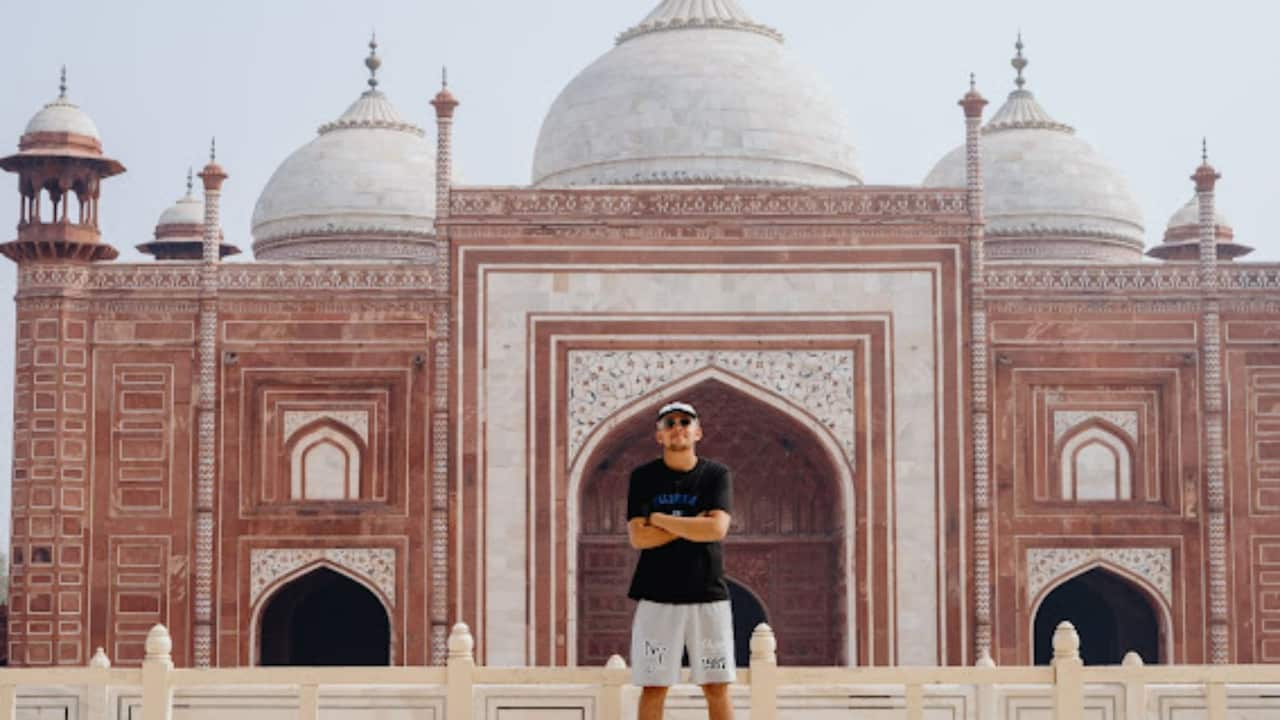
One day, a colleague invited him to a Sunday service at her Pentecostal church.
"I'd tried everything else, and it was time to try God," Evan said.
"I remember being so honest as I walked up to the door. I said: 'God, I literally have no clue if you're real, but if you are, I want to know, and I'd love for you to show me'."
Evan says he has never looked back from that Sunday afternoon, seeing so many young people together.
Gen Z's spiritual and religious rise
Gen Z men (aged 13-28) are more likely than women to identify as religious, according to a 2022 Australian Community Survey conducted by National Church Life Survey Research (NCLSR) with 3090 participants.
This NCLSR survey reported that 26 per cent of gen Z males believe "there is a personal God", compared to 18 per cent of gen Z females.
NCLSR's key activity is a five-yearly survey of Christian churches in Australia.
The 2021 Census found 43.9 per cent of people in Australia identified as Christian. This was down from 52.1 per cent in 2016, and 61.1 per cent in 2011 and marks a 17.2 per cent decrease over a decade.
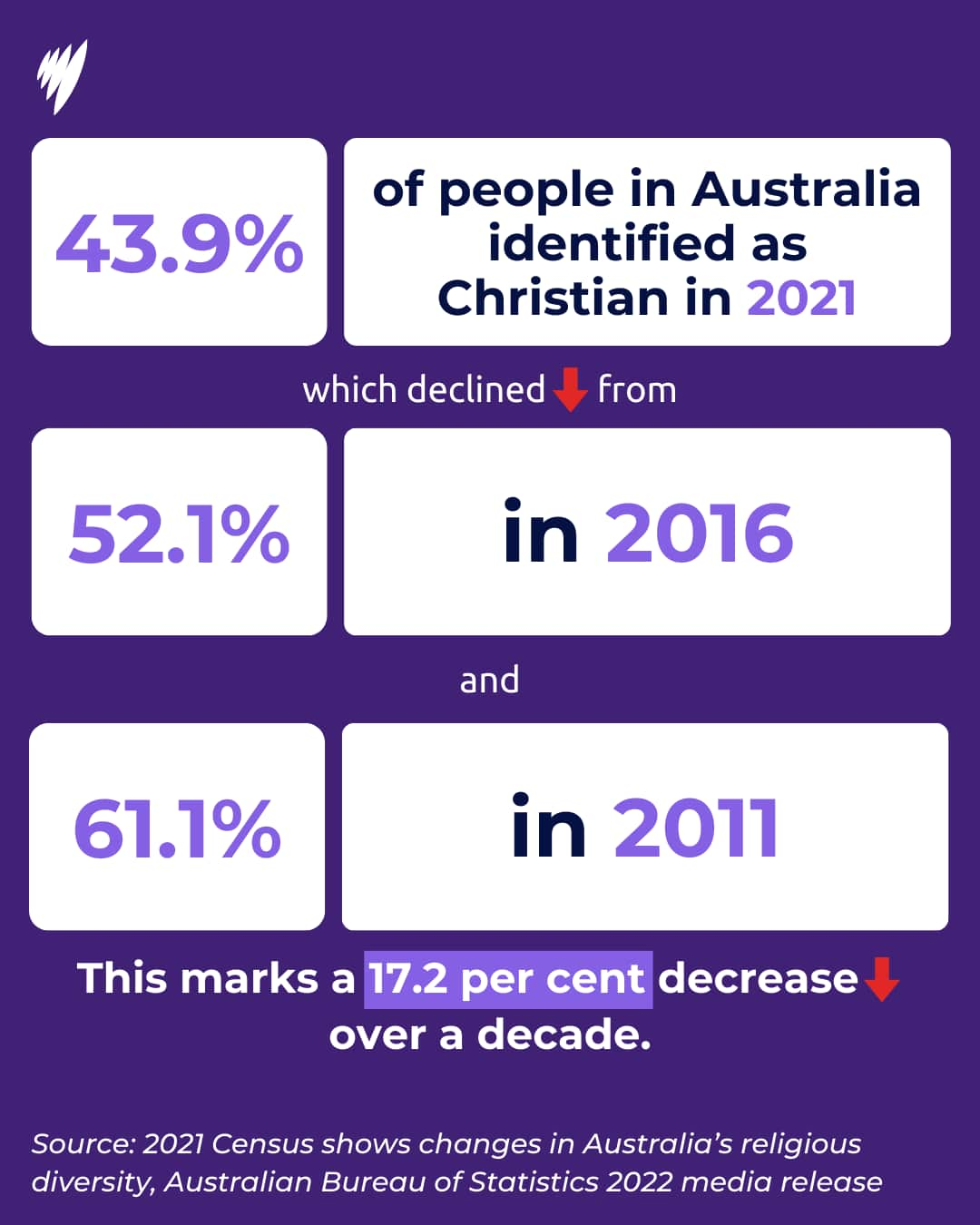
Dr Anna Halafoff, an associate professor of Sociology at Deakin University, specialises in spirituality and says there are certain groups within Christianity experiencing growth.
"That does include a lot of Pentecostal groups, charismatic groups, and also emerging Christian groups," she said.
"We are definitely seeing young people drawn to those groups and movements ... Orthodoxy is also rising."
She says there is also a rise in spirituality in Australia — especially with younger generations. According to 2023 research conducted by Halafoff and her colleagues, 38 per cent of gen Z in Australia describe themselves as spiritual.
The 2022 NCLSR survey also reported Gen Z females were more likely to say "there is some sort of spirit of life force" at 34 per cent — compared to 26 per cent in gen Z males.
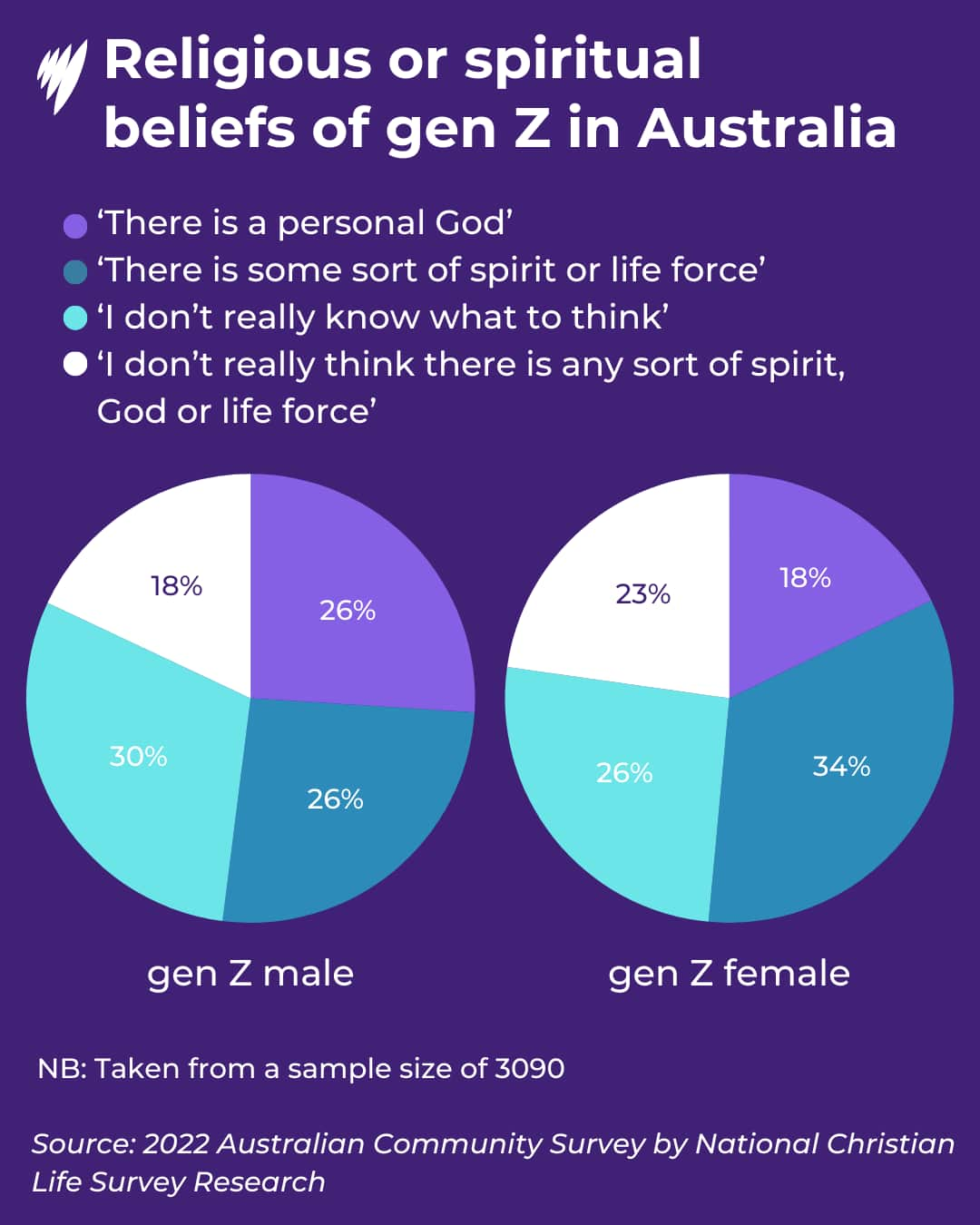
Halaloff says there is also substantive numbers of young people who stay in the religion they're born into; these people can be described as nominally religious.
The researcher suggests there are many possible reasons for younger people looking towards religion — including that religions may shift to appeal to new audiences, and simply the nature of one's formative years.
"Youth is a time of really defining your own identity. It's a time when you're going to feel pressures that you haven't necessarily felt to the same degree — in terms of economic pressures or social pressures — and having to make those decisions," she said.
She says youth is also a time of life when people might seek community.
"Often people get involved in religious groups through significant relationships, whether that's with peers or through a romantic relationship."
Spirituality within organised religion
Soaliha Iqbal, 26, met her husband while studying at university. He converted to Soaliha's religion of Islam before they married.
"[He] is a white Australian man who was raised non-religious ... I don't think he really ever had an interest in religion until he met me."
Soaliha was raised Muslim within a Muslim community by her parents — who immigrated to Australia from Pakistan — and went to a Muslim school until she was 10 years old.
"When you exist as both a marginalised ethnic minority and also, you're in a minority religion in a country like Australia, it's pretty normal for culture and religion to become enmeshed," Soaliha said.
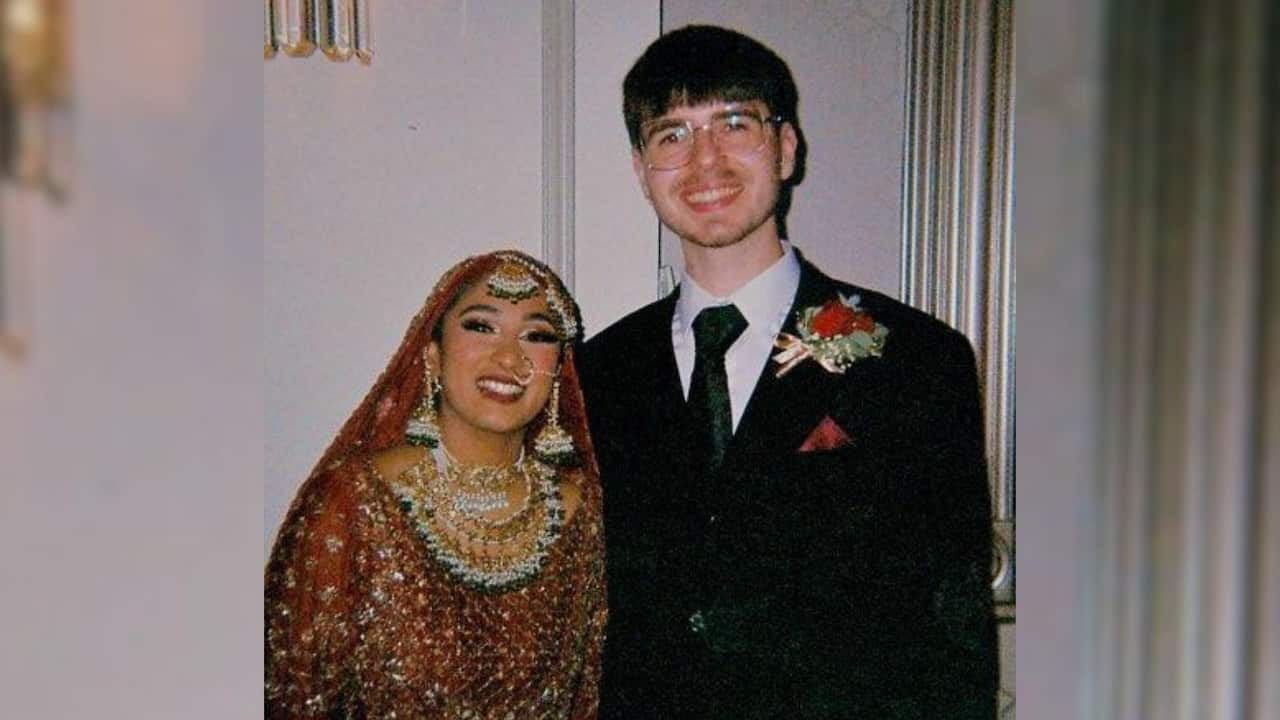
While Soaliha never doubted her faith, she explored what it meant to her as a young adult.
"I was really renegotiating a lot of how I connected to and expressed religion," she said.
"Because I would consider myself very spiritual and I belonged to an organised religion."
She says that along with generosity, charity and mutual aid being key components of her spiritual and religious expression, community connection was likely a big part of her husband's decision to convert.
A 'third space' alternative?
For Rajas Satija, 21, it's no surprise that younger people are looking to religion and spirituality.
"COVID kind of exacerbated this trend of young people looking for third spaces," he said.
A third space is a neutral public space where people can connect and socialise that is separate from the spaces of work and home.
"And I think religion does offer a very viable alternative for a lot of people."
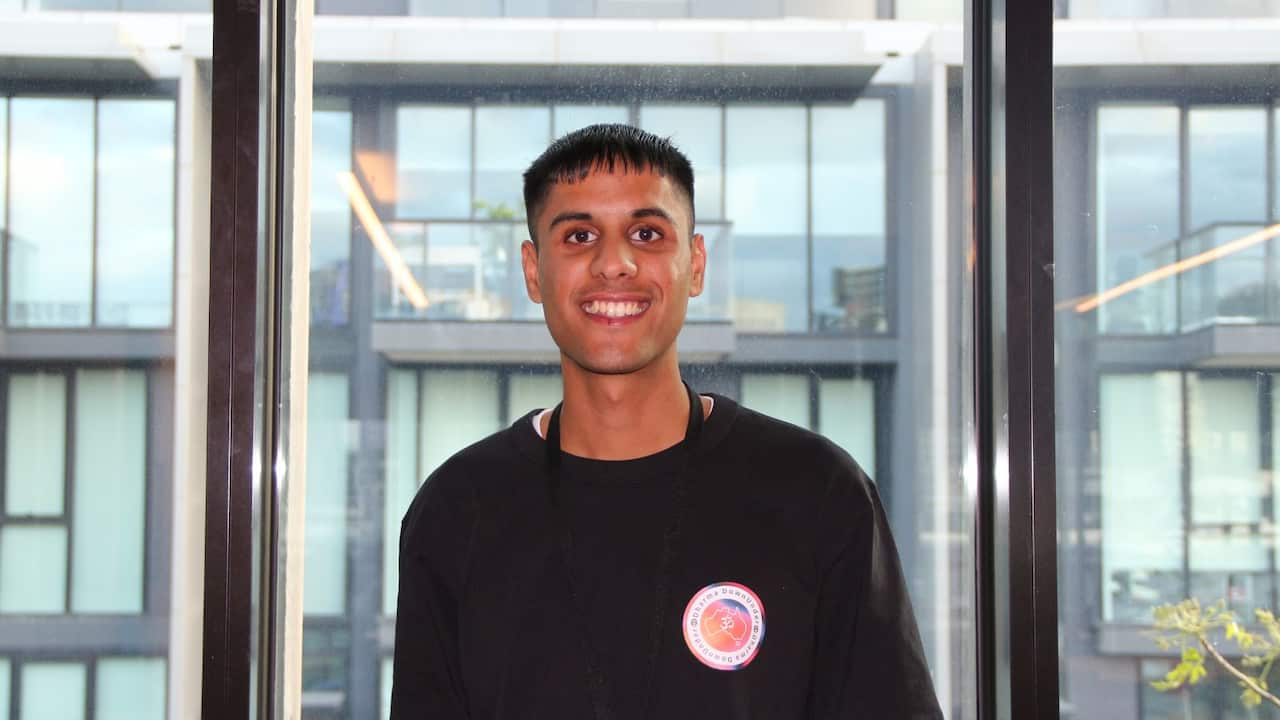
Rajas was raised by progressive Hindu parents. When he was 19, Rajas started the group Dharma Down Under for people aged 18-30 to meet and search for meaning.
"Dharma is essentially all traditions that exist within India ... Loosely translated, it means duty, or that which sustains," Rajas said.
"And it is interpreted in different forms in the four major religions of India: Buddhism, Hinduism, Sikhism and Jainism."
Rajas says people from these religious backgrounds aren't often taught to ask spiritual questions and wants to connect with people like himself who have grown up within them.
"We look at our scriptures in a very critical way; we'll discuss the worst parts of them."
For other religious converts like Dane, it was about a connection with God.
"Once I began engaging with faith and allowed myself to believe in something, I just noticed that everything in my life started to make a lot more sense."
Dane says he plans on being Orthodox for the rest of his life.
"I have a lot of learning to do. I am a terrible sinner.
"But through God, I may be saved."
And for more stories on sex, relationships, health, wealth, grief and more, head to Insightful — an SBS podcast series hosted by Kumi Taguchi. Follow us on the SBS Audio App, Apple Podcasts, Spotify, or wherever you get your podcasts.
Insight is Australia's leading forum for debate and powerful first-person stories offering a unique perspective on the way we live. Read more about Insight
Have a story or comment? Contact Us


